2023 New Directions in Cuban Studies Speakers
Meet the Panelists

Adam Mickiewicz University in Poznan, Poland
Ruxandra Ana (PhD University of Warsaw) is an anthropologist interested in cultural heritage in relation to entrepreneurship and social change in Cuba. Currently a postdoctoral researcher at Adam Mickiewicz University in Poznań, Poland, she analyzes dance labor in migratory contexts, focusing on Cuban migrants in Italy and Germany. Her doctoral and postdoctoral projects were funded by the Polish National Science Center. She has published articles in Journal of Ethnic and Migration Studies, Leisure Studies, Ethnologie Française, and Ethnologia Europaea among others.
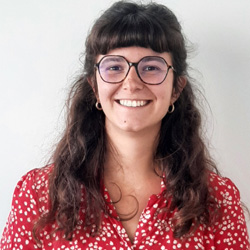
Université Paris 3 Sorbonne-Nouvelle
Laurine Chapon is a doctoral student in geography at Université Paris 3 Sorbonne-Nouvelle. She was the coordinator of the Caribbean pole of the Institut des Amériques between 2020 and 2023, and has lived between Santo Domingo and Havana. Her research focuses on housing policies in Cuba and the influence they have on the residential trajectories of inhabitants and the material forms of the city. She works from a social and critical geography perspective and ethnography methods.
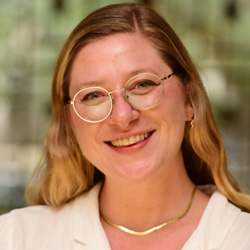
Tulane University
Kaillee Coleman is a doctoral student in the joint Latin American Studies and Art History program at Tulane University. Her research focuses on contemporary Caribbean art and cultural production, with special emphasis on the Black Atlantic and diaspora studies. She earned a M.A. in Latin American Studies from Tulane University and holds undergraduate degrees in Art History and Interdisciplinary Art (dual emphasis in Visual Art and Theatre) from Seattle University. From 2021-2022, she was the recipient of U.S. Dept. of Education Foreign Language and Area Studies (FLAS) Fellowship in Haitian Creole. Additionally, she was the 2022-2023 recipient of the William J. Griffith Award for Outstanding Teaching Assistant in Latin American Studies, awarded by the Stone Center for Latin American Studies at Tulane University. She served as Vice-President of the Tulane Graduate Studies Student Association (2022-2023) and as Treasurer of the Tulane Latin American Graduate Organization (2021-2022). Alongside her research and work as an associate editor for Keywords for Black Louisiana (2021-present), she works currently as an archival assistant and metadata specialist for the forthcoming Stone Center for Latin American Studies Centennial Project, celebrating 100 years of Latin American Programming at Tulane University.
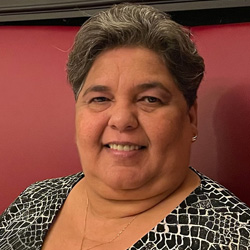
Tulane University
María Caridad Cumaná has a Master of Arts in Art History. She was a professor of Film and Television at the Faculty of Arts and Letters of the University of Havana, Cuba, for 15 years. From 2007 to 2011 she was chief coordinator of the Audiovisual Portal of Latin American and Caribbean Cinema of the New Latin American Cinema Foundation (FNCL) and received the “Excellence in Online Investigative Journalism” award from the AVINA Foundation and DAROS. She produced the documentary “Out My Windows,” filmed in Havana by the National Film Board of Canada (NFB) in Cuba. She was an adjunct professor at Miami Dade College, where she taught film appreciation, Latin American cinema, and art history. She is co-author of the books Mirada al cine cubano (1999) with Walfredo Piñera, Latitudes del margen: El cine latinoamericano antes del tercer milenio (2008) with Joel del Rio, Habaname: la ciudad musical de Carlos Varela (2014) with Karen Dubinsky and The Cinema of Sara Gomez. Reframing Revolution (2021) with Susan Lord.

The New School for Social Research
Miguel is a Mexican researcher and scholar in formation. He holds a Bachelor’s degree in International Relations from University of Guadalajara. Currently, he is into his transition from the Master’s program to a PhD in the sociology department of The New School for Social Research in New York. His research interests are deviance studies, underground economies and the war on drugs through both historical sociology and ethnography.
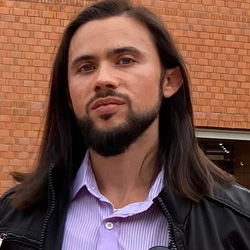
Universidad Iberoamericana (México)
Born in Havana, Cuba, since 2019 Adrian Fundora García has resided in Mexico City. He is a graduate in Sociocultural Studies (Universidad Agraria de La Habana, 2015) and holds a master’s degree in Anthropology from the Universidad Iberoamericana de México (2021), where he is currently pursuing a doctorate. Fundora worked as a researcher at the Instituto Cubano de Antropología in La Habana from 2015 to 2019. He is the author of research on the generational interactions of Cubans residing in Havana with the ration book, an ethnographic artifact of relations with the State under the Revolution. His research interests include the anthropology of material culture, materiality, and ethnographic artifacts; public policies; economics, consumption, and food; and post-socialism and revolutions; politics and the State; epistemology and historiography of sociocultural anthropology; and ethnography of political rituals, situations, and social dramas. Among his most recent publications are: “La libreta de abastecimientos en la cotidianidad del cubano. Aproximaciones para una mirada antropológica” (Catauro, N°35, 2017); “Nitza Villapol y la cultura de la invención” (Rialta, 2021); “La voz de los de abajo: etnografía, periodismo y literatura en Pablo de la Torriente Brau y Jacques Roumain” in Antropología sociocultural y construcción nacional en Cuba y Haití. Antología crítica e historia comparada (2021).
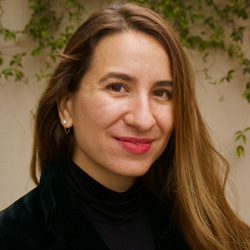
University of Michigan
Miranda García is a PhD candidate in the University of Michigan’s Department of Anthropology. She studies new media, advertising, entrepreneurship, and identity in Cuba and its diaspora. Her work draws on ethnography, oral history, and semiotic analysis to explore topics ranging from collective memory in Little Havana nostalgia shops to her current project on Cuba’s emerging advertising industry. Miranda takes an interdisciplinary and multimedia approach to academic inquiry, pairing more traditional research with film and other media forms. Miranda is a fellow at the National Science Foundation and previously at the Weiser Center for Emerging Democracies. She received a BA in anthropology and art history from the University of Chicago, where she was also a Mellon Mays Fellow.
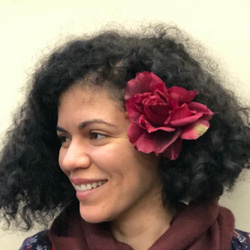
University of Montreal
Yohayna Hernández González defines herself as an Osikán playwright and incubator of creation, exploring the relationship between experience and language, fiction and reality. Her work bridges the intersection of research, creation, and thought. She co-coordinated the research-creation networks Tubo de Ensayo (2006-2012) and Laboratorio Escénico de Experimentación Social (LEES, 2012-2020). In Cuba, she taught at the Universidad de las Artes de Cuba y Escuela Internacional de Cine y Televisión de San Antonio de los Baños, and published with Casa Editorial Tablas-Alarcos. Since arriving in Montreal in 2019, she has participated in and co-coordinated the TransAmériques Festival Playwright Clinics (2019-2023) and worked as an associate playwright at LA SERRE – arts vivants (2019-2020). As an independent playwright, she has accompanied several stage creations of documentary theater and living arts, including Fausse balle (at the Théâtre Hors Taxes, Montreal, 2023), Luz: terre (by the choreographer Sonia Busto, Montreal, 2021); Granma, Trombones from Havana (Rimini Protokoll, Berlin, 2019), I love Madrid (Madrid, 2019), and BaqueStriBois (La Habana, by Osikán and others, 2015). She is a member of the editorial board of the art and political magazine Liberté and researches “Dramaturgies of listening.”
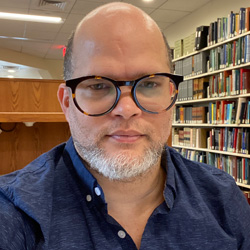
University of Connecticut
Reynaldo Lastre is a PhD candidate in Literatures, Cultures, and Languages at University of Connecticut. He received a master’s degree from the same institution in 2019. He is currently working on his dissertation, Nuclear Technology and Cultural Production in Cuba, from which he has presented partial results at the MLA Congress (2022), LASA International Congress (2021), X Encuentro Internacional de Investigación sobre Cine Chileno y Latinoamericano. Cineteca Nacional de Chile (2021), Symposium Translation of Letters and Ideas in Cuban’s Republic (2021) – where he was also a co-organizer with Professor Jacqueline Loss -, and Cuba después del 59: Special Cuban Colloquium (2019). He was awarded the 2022-2023 Goizueta Fellowship for archival research at the Cuban Heritage Collection at the University of Miami. Reynaldo has co-edited the volumes Anatomía de una Isla. Jóvenes ensayistas cubanos (Ediciones La Luz, 2014) and Isla Diseminada. Ensayos sobre Cuba (Editorial Hypermedia, 2022), which spotlight a new generation of essayists who focus on Cuba. He has published articles in INTI: Revista de Literatura Hispánica, Hypermedia Magazine, Rialta Magazine, LL Journal, Revista Cine Cubano, and laFuga, among others.
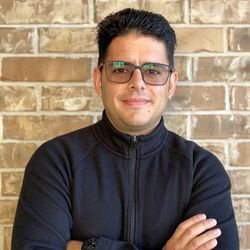
University of Texas-Austin
Ph.D. candidate, Iberian and Latin American Languages and Cultures, Department of Spanish and Portuguese, UT Austin. Background in Art History and Social Anthropology, specializing in Afro-Caribbean and Afro-Latin American Studies. He has been a professor in the departments of Cuban Studies and Theoretical Studies on Visual Arts, at the Universidad de las Artes, Havana, Cuba. He is interested in the intersections between Visual Anthropology, Religious Studies, and Digital Humanities. In recent years he has worked on Cuban religions of African antecedents, religious processes and segregation in the Caribbean, trans-local religious families and genealogies, and religious themes in Cuban literature, visual arts, and public spaces.
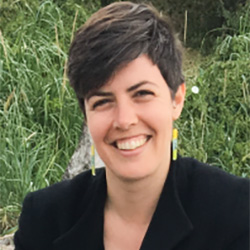
University of Nevada, Reno
Ruthie Meadows is an Assistant Professor of Ethnomusicology at the University of Nevada, Reno. Her research focuses on global circulations of music and sound in the Hispanophone and circum-Caribbean, with attention to transatlantic forms of engagement, queer studies and gender studies, ritual music, and global affect. Her first book, “Efficacy of Sound: Power, Potency, and Promise in the Translocal Ritual Music of Cuban Ifá-Òrìsà,” will be published by The University of Chicago Press in November, 2023.
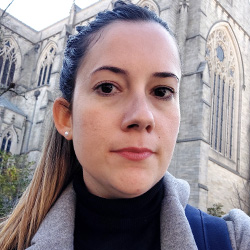
Tulane University / Universidad de Chile
Isdanny Morales Sosa is a PhD student in the Latin American Studies program at Tulane University. She holds a BA in Art History from the Universidad de La Habana. Currently, she is in the final stages of writing her doctoral thesis in Philosophy, with a specialization in Aesthetics and Art Theory at the Universidad de Chile. In this research, Ms. Morales draws from the works of filmmakers such as Enrique Álvarez, Carlos M. Quintela, and Alejandro Alonso to analyze the presence of dead time in post-Soviet Cuban cinema. She has taught aesthetics, art theory, and Cuban cinema at the Universidad de La Habana and the Pontificia Universidad Católica de Valparaíso. She was one of the organizers of the Colloquium “Addressing the Past: Revolution and Memory in 21st Century Cuban Media and Cinema,” which was sponsored by the University of Connecticut, Yale University, Rialta Ediciones and the University of Chile. In 2022, she was awarded a grant from the Chilean Ministry of Cultures, Arts, and Heritages to undertake the research project titled “Displaced Memories and New Affections: The Poetics of South-South Migrant Artists in Chile.” During the Fall of 2022, she was a Visiting Student Research Collaborator (VSRC) at
Princeton University.

Conservatoire à Rayonnement Régional de Poitiers, Centre d’études et de Recherche Musicales
Javier Soriano, is a Cuban musicologist and trumpetist, graduated from the University of the Arts of Cuba and Pôle Supérieur Aliénor de Poitiers in musicology, musical training, and early music, respectively. He is currently a professor of musical training, analysis, ensemble practice, and early music at the Conservatoire de Poitiers and a researcher at the Universidad de las Artes of Havana and the Centre d’Etudes et de Recherches Musicales. Soriano is a member of the ARTEMIS Association of European Conservatories’ (Evaluation of Academic Programs in Europe) and author of the book Fiesta electrónica en La Habana y Poder simbólico (Lomas Editorial). He is published in several academic journals and publications, including Casa de las Américas Music Bulletin, New York Classical Review, and Revista Clave. As a professor, he has lectured at scientific events and universities in Cuba, Colombia, Canada, the United States, Spain, Belgium, France, Italy, Ireland, and the Czech Republic. Javier Soriano has been awarded the Premio de Investigación from the Instituto Superior de Artes de La Habana, the Premio Cubadisco for best chamber music record (with the Ars Longa Early Music Ensemble), and nominated for the REMA Awards (European Music Network Antigua) for best extra-European project.
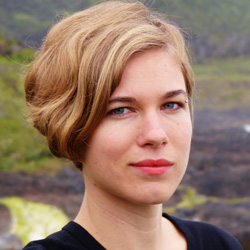
University of Oregon
Maile Speakman is an Academic Writing Specialist and an Undergraduate Instructor at the University of Oregon. She received a PhD in American Studies and a certificate in Women’s, Gender, and Sexuality Studies from Yale University in May of 2023. Her book project, Coding the City: Platform Tourism and U.S. Digital Capital in Contemporary Havana, is an ethnography of the social, spatial, economic, and affective impact of U.S. technology platforms in Havana. Her first engagement with Cuban institutions started in 2007 when she studied as an exchange student at Havana’s Instituto Superior de Arte. Speakman’s work has been published in Cuban Studies, Latin American and Caribbean Ethnic Studies, and in Brazilian journal Periódicus as part of GLQ’s Queer/Cuir Américas project.

University of Wisconsin-Madison
Luke Urbain is a Ph.D. candidate at UW-Madison in the Department of Spanish & Portuguese with a minor in the Transdisciplinary Study of Visual Cultures. Their dissertation project, “Scenes of Inseguridad: Safety and Uncertainty in Contemporary Cuban Culture,” considers work made both on and off the island across the revolutionary period. It argues that Cuban artists and writers mine the fiction of absolute safety as a generative space from which to elaborate alternate forms of being with risk across national, transnational, and planetary frames. Last spring, they published an article in the Journal of Latin American and Latinx Visual Culture on the artist Felix Gonzalez-Torres.
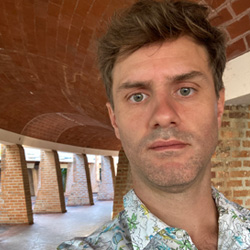
The Graduate Center, CUNY
Alexander Werner is a PhD candidate in anthropology at The Graduate Center, CUNY. His dissertation, tentatively titled “The Curse of Being Completely Surrounded by Context: Form, Content, and Commitment In Cuba’s Post-Castro Artworld”, looks at art students, artists, and curators in Havana as they navigate expectations that they critically respond to Cuba’s socio-political realities and work to transform society for the better.
Meet the Moderators
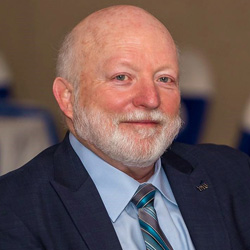
Florida International University
Jorge Duany, Ph.D., is Director of the Cuban Research Institute and Professor of Anthropology in the Department of Global & Sociocultural Studies at Florida International University. Born in Cuba and raised in Panama and Puerto Rico, Dr. Duany previously served as Acting Dean of the College of Social Sciences and Professor of Anthropology at the University of Puerto Rico, Río Piedras (UPR). He earned his Ph.D. in Latin American Studies, specializing in anthropology, at the University of California, Berkeley. He also holds an M.A. in Social Sciences from the University of Chicago and a B.A. in Psychology from Columbia University. Dr. Duany has published extensively on migration, ethnicity, race, nationalism, and transnationalism in Cuba, the Caribbean, and the United States. He has also written about Cuban cultural identity on the island and in the diaspora, especially as expressed in literature, music, art, and religion. He is the author, coauthor, editor, or coeditor of twenty-two books.
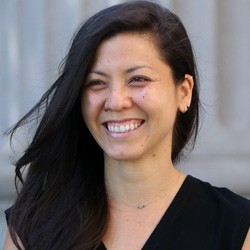
Massachusetts Institute of Technology
Paloma Duong is Associate Professor of Latin American Studies and Media Studies at MIT, where she researches and teaches Latin American culture from an interdisciplinary perspective in dialogue with cultural studies, media theory, and political philosophy. Her investigations focus on the role of cultural and media practices in the emergence and transformation of political imaginaries of social change in 20th and 21st century Latin America. Her book Portable Postsocialisms: New Cuban Mediascapes after the End of History (University of Texas Press 2024) is a study of Cuba’s changing media cultures and an inquiry on the global postsocialist condition and its contexts, at a time when the end of twentieth-century socialist state projects coexists with the rise of anticapitalist movements worldwide. Her articles have appeared in the Journal of Latin American Cultural Studies, Art Margins, Revista Hispánica Moderna, and Cuban Counterpoints: Public Scholarship about a Changing Cuba.
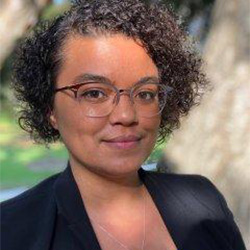
Princeton University
Hanna Garth joined the Department of Anthropology in September 2021 as a sociocultural and medical anthropologist. Garth’s scholarship is broadly focused on the ways in which marginalized communities struggle to overcome structural inequalities and prejudice as they attempt to access basic needs. Garth studies these questions in Latin America and the Caribbean, and among Black and Latinx communities in the United States. She has focused on the ways in which the global industrial food system affects food access inequalities. Her first book “Food in Cuba: The Pursuit of a Decent Meal” (Stanford University Press, 2020), is based on ethnographic research in Santiago de Cuba, the island’s second largest city. Her research reveals the ways that even food distribution systems, which ostensibly supply sufficient nutritional needs, can also have detrimental effects on individual and community wellbeing. She received her PhD in Anthropology from UCLA, and an MPH from Boston University.
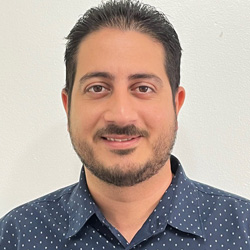
El Toque
Born in Cuba and exiled to Miami, José Nieves is passionate about journalism, sustainability, and Media as a tool for democratization in authoritarian regimes. A Newmark J+ Social Impact Fellow 2023, he has held commercial and non-profit journalism management positions since 2016.
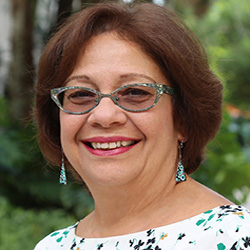
University of Miami
Dr. Lillian Manzor is Professor of Modern Languages and Literatures and Hemispheric Caribbean Studies at the University of Miami and Founding Director of the Cuban Theater Digital Archive (www.cubantheater.org). She is co-editor of the book series Sualos, published jointly by Havana’s Editorial Alarcos and Miami’s CTDA Press. She is widely published in the field of Latin American and Latinx cultural studies and theater and performance studies. Her latest books are Marginality Beyond Return: US-Cuban Performances in the 1980s and 90s (Routledge 2023) and the coedited anthology Teatro de las tres Américas: escena, política y ficción. Antología Norte (Ediciones TeatroSinParedes 2022). In the field of Digital Humanities, she has published Cuban Theater in Miami: 1960-1980 (http://scholar.library.miami.edu/miamitheater/), and the multimodal book, El Ciervo Encantado: An Altar in the Mangrove (http://ciervoencantado.tome.press/). Her research and cultural projects have been funded by the Andrew W. Mellon Foundation, National Endowment for the Humanities, American Council of Learned Societies, Ford Foundation, Rockefeller Foundation, Cuban National Council for the Performing Arts, among others. As a community engaged scholar, she works with theater companies in the United States, Cuba, and Latin America, and has been involved in developing US-Cuba cultural dialogues through theater and performance since 1993.
Meet the Guest Speakers
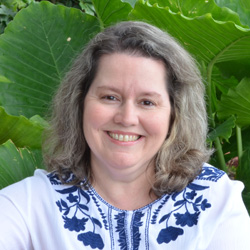
Florida International University
Elaine Acosta González is a Sociologist with a Ph.D. in International and Intercultural Studies from Deusto University, Bilbao, Spain. She also has a Master’s degree in Latin American political and social studies from the Latin American Institute for Social Studies (ILADES), Santiago-Chile. Currently, she is a visiting scholar at the FIU Cuban Research Institute and executive director of the Aging, Caring, and Rights Observatory. Her research focuses on aging, international migration, care work, and welfare policies. She is actively involved in numerous international research networks on care, aging, and gender, such as the Global Alliance for Care (UN-Women and National Institute of Women), Millennium Institute for Caregiving Research (National Agency for Research and Development (ANID) – Chile, Carework Network in the US, among others. Her last co-edited book Cuidados y Agencia de la Sociedad civil en Cuba. Aprendizajes internacionales, experiencias locales y desafíos éticos was published in 2023.
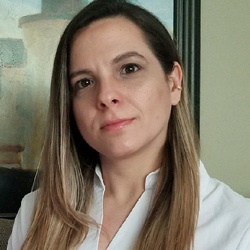
University of Delaware
Tamarys L. Bahamonde is an economist graduated from the University of Havana and a PhD Candidate in Public Policy and Public Administration at the University of Delaware. She holds a Master’s degree in Regional Development from the University of Camagüey, Cuba. She has published articles in newspapers and magazines and collaborated on books on the Cuban economy and society. At the University of Havana, she taught classes related to the Cuban economy and designed and taught undergraduate courses on the economic cycle and the Cuban labor market. At the University of Delaware, she teaches Public Policy to undergraduate students. She has been nominated for and received several awards in the United States for her research and leadership on Cuba-related issues. She is currently writing her doctoral dissertation on government decision making during economic crises, using the Cuban reforms as a case study.
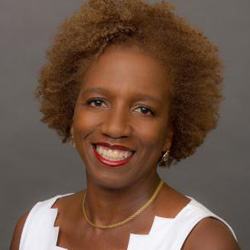
University of Pennsylvania and Goizueta Distinguished Presidential Fellow, Cuban Heritage Collection, University of Miami Libraries
Odette Casamayor-Cisneros is a Cuban-born scholar of contemporary Latin American and Caribbean cultural studies. She received her Ph.D. in Art and Literature from the École des Hautes Études en Sciences Sociales (EHESS) in Paris in 2002 and taught at the University of Connecticut before joining the University of Pennsylvania in 2019 as an Associate Professor in the Department of Spanish and Portuguese and an affiliated faculty member with the Department of Africana Studies and the Center for Latin American and Latinx Studies. Dr. Casamayor-Cisneros is the author of Utopia, distopía e ingravidez: reconfiguraciones cosmológicas en la narrativa postsoviética cubana (Vervuert, 2013). She has also published the collection of stories Una casa en Los Catskills (1st edition, La Secta de los Perros, 2012, and 2nd edition, Letras Cubanas, 2016). Casamayor-Cisneros is currently working on several books. These include In Black Ink: Writings From the Flesh of a Black Cuban Woman, and On Being Blacks: Self-Identification and Counter-hegemonic Knowledge in Contemporary Afro-Cuban Cultural Production. For 2023-2024, she has been named the inaugural Roberto C. Goizueta Distinguished Presidential Fellow at the Cuban Heritage Collection, University of Miami Libraries.

Center for Democracy in the Americas (CDA)
María José Espinosa is the executive director of the Center for Democracy in the Americas (CDA), where she leads advocacy, program, and communication strategies that drive transformative action in U.S. foreign policy toward Latin America and the Caribbean on issues including regional U.S.-Cuba relations, migration, LGBTQ+ and women rights, and protections for refugees and migrants. María José was recognized by New America as one of the 2020 Latino National Security & Foreign Policy Next Generation Leaders. She holds an M.Sc. in Environmental Economics and Tourism from the Universitat de les Illes Balears in Spain; an M.Sc. in Economics from the University of Havana in Cuba; and a B.A. in Economics from the University of Havana.
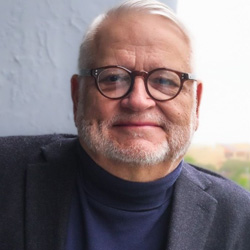
John Jay College, City University of New York
Lisandro Pérez is the author of the recently published The House on G Street: A Cuban Family Saga (NYU Press, 2023). He is a Professor at John Jay College, City University of New York. His previous book, Sugar, Cigars, and Revolution: The Making of Cuban New York (NYU Press, 2018), won the Herbert H. Lehman Prize for Distinguished Scholarship in New York History, awarded by the New York Academy of History. A Spanish edition of the book was published in 2020 by Casa de las Américas in Havana. Pérez served for six years as editor of the journal Cuban Studies and has published in the Latin American Research Review, International Migration Review, Journal of Latin American Studies, Cuban Studies, and the Annals of the American Academy of Political and Social Science, among other journals. In 1991, he founded the Cuban Research Institute at Florida International University and served as its director for thirteen years. This year, he received the Prize for Outstanding Scholarly Contributions to Cuban Studies, awarded by the Cuba Section of the Latin American Studies Association.
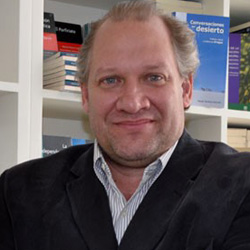
Colegio de México
Rafael Rojas (Santa Clara, Cuba) is a historian, essayist, and professor at the Center for Historical Studies at the Colegio de México. He received a Bachelor’s degree in Philosophy from the University of Havana and a Doctorate in History from the Colegio México. He specializes in the intellectual, political, and diplomatic history of Latin America in the nineteenth and twentieth centuries. His most recent books include Fighting Over Fidel: the Cuban Revolution and the New York Intellectuals (Princeton, 2016); La polis literaria. El boom, la Revolución y otras polémicas de la Guerra Fría (Taurus, 2018), and El árbol de las revoluciones: el poder y las ideas en América Latina (Turner, 2021). Since June 2019, he occupies the 11th seat in the Mexican Academy of History.